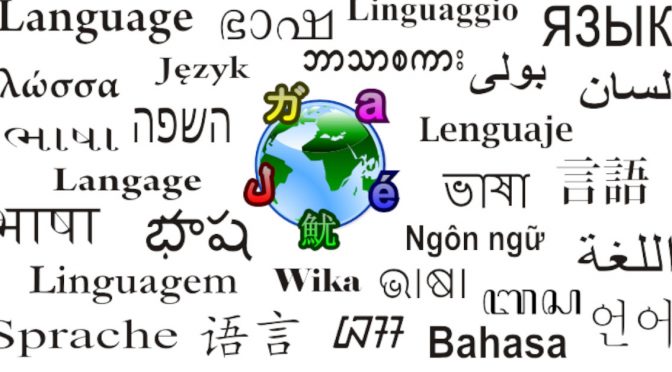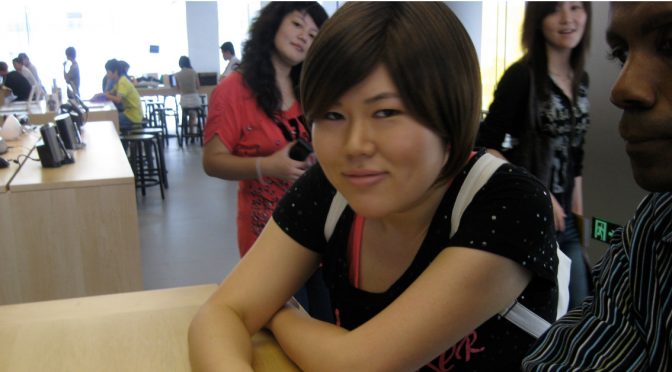From: walt@jamaicaninchina.com
Subject: Jamaican in China!–“That’s MISTER Milk to you, madam!” (Language Lesson #1)
Date: October 22, 2010 8:00:08 AM GMT+08:00
Tales of Dating and Cereal, (Cereal Dating???)
As I’ve said to many a friend when discussing inter-cultural and international dating, “Language is highly overrated.” You don’t need to share a common spoken language in order to meet, date or even marry! In fact, I had a friend in college who went to Brazil, fell in love, and married his new sweetheart all within a week or two, and he didn’t speak a word of Portuguese, and his bride didn’t speak a word of English!
Within a few weeks, he was speaking Portuguese and, while I haven’t heard from him in many years, I’ll attach my own “…and they lived happily ever after” (for as long as the relationship was destined to last) to that story. I’ve always believed that the right motivation is necessary to do just about anything–like learning a new language in two weeks. So, anyway, my point, as I’ve said, is that language is highly overrated!
In fact, in the dating game, I’ve found that NOT sharing a common language keeps the interactions between two people basic and uncomplicated. It forces you to get to the essence of the relationship more quickly when dealing with misunderstandings.
I’ve found that in a relationship with someone who speaks the same language (worse if they speak it well and have an advanced vocabulary) you can spend hours nitpicking every little detail and nuance of “what he said, she said, he meant, she implied, what did you mean by that?” until the cows come home!”
On the other hand, when you don’t have the luxury (or excuse) of hiding under layers of words, or behind shades of meaning, the discussions are brief, simple, and the end result comes quicker. You can forgive misunderstandings that are caused by differences in culture and language much more easily, and get to the essential questions, and answers (Do I love this person? Will I forgive this misunderstanding and move on? Is the essential attraction and commitment still there? In other words: I like you. You like me. Let’s go!)
Yep, it’s pretty basic, perhaps even simplistic, I’ll admit, but I never said I ever graduated to mature or sophisticated levels of dating interaction or romance. Functioning at a third-grade level is good enough for me!

However, with that said, there ARE some instances where being able to negotiate the subtleties of language are very useful.
I’m here in China, see, learning Chinese (Mandarin to you westerners, Putonghua to us Easterners), and like many foreigners raised with a foreign “ear,” the most challenging part is learning the tones of Chinese words. Very briefly, the meaning of a sound in Chinese is determined by the “tone” you use when speaking it. There are four tones to every “word” and whether you raise, lower, keep flat, or dip-and-raise the tone of the word affects the meaning–in other words, it becomes a completely different word. This is profoundly difficult for (former) westerners like me to grasp. Tones for us, affect the emotion behind a word, not the meaning. About the only similarity we have in English, is how we raise the tone of the last word when asking a question. Do you know what I mean?
Check out this link with sound clips for each pronunciation
https://www.thoughtco.com/four-tones-of-mandarin-2279480
high level – first tone
rising – second tone
falling rising – third tone
falling – fourth tone
“Pinyin” is the system of roman character phonetic representation of Chinese characters
|
Pinyin
|
Chinese Character
|
Meaning
|
Sound Clip
|
|
mā (ist tone)
|
媽
|
mother
|
audio
|
|
má (2nd tone)
|
麻
|
hemp
|
audio
|
|
mǎ
(3rd tone)
|
馬
|
horse
|
audio
|
|
mà (4th tone)
|
罵
|
scold
|
audio
|
To a westerner, unaccustomed to differentiating such subtle tones, mā, má, mǎ, and mà sound exactly the same. To a Chinese person, the subtlety is detectable, and very confusing in trying to understand a foreigner. (So, using the example in the chart above, if you mispronounce “ma” you could end up saying: Have you seen my mother’s hoofs lately? She’s been grazing and galloping out in the fields for a long time. Do you think I need to re-shoe her?)
Similarly, to a Chinese person, the English words “bowl” and “ball” sound pretty much the same, and they might pronounce it as such. However, “I am looking for a bowl” and “I am looking for a ball would place you in very different locations, and produce quite different outcomes!
That’s “MR.” Milk to you, Madam
My friend, Cong (pronounced Tsong), is nice enough to help me practice precise Putonghua pronunciation. I shared with her some of the challenges I was experiencing during a recent shopping adventure. I had walked into a store and asked for soy milk. (I had learned that basic ability back on Saipan, for heaven’s sake! I thought I was an expert!) First a little language lesson.
Language Lesson:
Wǒ = I
yao = want (pronounced “Yow” like how)
dòujiāng = soymilk (pronounced dowjyang)
So, putting it all together, I thought I was saying:
Wǒ yao dòujiāng
Which means “I WANT soy milk.”
However, when I practiced it with Cong, she explained to me that what I was actually saying was
Wǒ JIAO dòujiāng
Which means “I AM CALLED Soy milk.”
You see, what had happened was….jiao (pronounced “Jyow” like “how”) and
yao (pronounced “Yow” like how to the untrained ear (and that’s how I learned it), they are pretty close;.
Yep, sure. Go ahead, laugh.
Picture me as I stride confidently into a store, look the sales clerk/cashier straight in the eye, and announce:
“Hello. I am called Soy Milk!”
HER: [Blank stare. Perhaps a chuckle]
ME: “I said, I am called Soy Milk!”
HER: “um…pleased to meet you? um… Milk.”
“That’s Mr. Milk to you, madam!”
Hmmmm. Something’s not going right here.
The subtle difference between yow and zyow was lost on my foreign ears, so I confused the two hoping, as I always do, that any compassionate listener would at least be able to figure out what I was attempting to communicate in the context of our conversation. (I’ve found that to be a very optimistic expectation, unless the listener is motivated by virtue of being a good friend or a romantic partner!)
So, anyway, in such a situation, I have two choices. I can
1. leave empty-handed, go back home, and eat my breakfast cereal dry.
OR
2. start using foreign hand gestures and sign language to communicate the concept of soy milk to someone who already thinks I’m a bit strange to be named after a plant-based beverage.
 um…hmmmm….well…
um…hmmmm….well…

Dry cereal’s not so bad, really.
>sigh<
Next time in the Language Lesson Series: Foreign hand gestures and sign language!





















